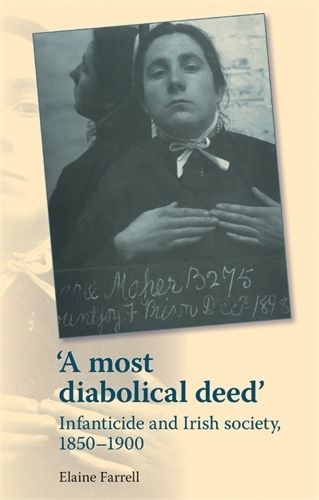Readings Newsletter
Become a Readings Member to make your shopping experience even easier.
Sign in or sign up for free!
You’re not far away from qualifying for FREE standard shipping within Australia
You’ve qualified for FREE standard shipping within Australia
The cart is loading…






Winner of the NUI Publication Prize in Irish History 2015.
This book examines the phenomenon of infanticide in Ireland from 1850 to 1900, examining a sample of 4,645 individual cases of infant murder, attempted infanticide and concealment of birth. Evidence for this study has been gleaned from a variety of sources, including court documents, coroners’ records, prison files, parliamentary papers, and newspapers. Through these sources, many of which are rarely used by scholars, attitudes towards the crime, the women accused of the offence, and the victim, are revealed. Although infant murder was a capital offence during this period, none of the women found guilty of the crime were executed, suggesting a degree of sympathy and understanding towards the accused. Infanticide cases also allude to complex dynamics and tensions between employers and servants, parents and pregnant daughters, judges and defendants, and prison authorities and inmates. This book highlights much about the lived realities of nineteenth-century Ireland. – .
$9.00 standard shipping within Australia
FREE standard shipping within Australia for orders over $100.00
Express & International shipping calculated at checkout
Winner of the NUI Publication Prize in Irish History 2015.
This book examines the phenomenon of infanticide in Ireland from 1850 to 1900, examining a sample of 4,645 individual cases of infant murder, attempted infanticide and concealment of birth. Evidence for this study has been gleaned from a variety of sources, including court documents, coroners’ records, prison files, parliamentary papers, and newspapers. Through these sources, many of which are rarely used by scholars, attitudes towards the crime, the women accused of the offence, and the victim, are revealed. Although infant murder was a capital offence during this period, none of the women found guilty of the crime were executed, suggesting a degree of sympathy and understanding towards the accused. Infanticide cases also allude to complex dynamics and tensions between employers and servants, parents and pregnant daughters, judges and defendants, and prison authorities and inmates. This book highlights much about the lived realities of nineteenth-century Ireland. – .